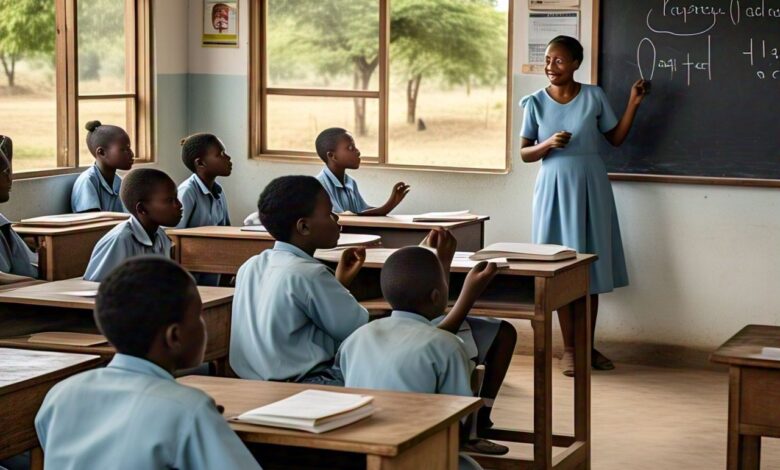Addressing Educational Challenges in Rural Zimbabwe: A Call to Action

The Crisis in Rural Education
Education in rural Zimbabwe is a pressing issue that demands immediate attention. The country’s rural learners are often left behind due to a lack of access to quality education, which is a stark contrast to their urban peers. Additionally, the absence of proper infrastructure, such as electricity and well-equipped classrooms, hampers the educational progress of students in these areas.
The Role of Community and Private Sector in rural education
Furthermore, recognising the limitations of government resources alone, initiatives like the one by Power Giants founder Mr. Edzai Kachirekwa have been instrumental in improving education in rural Zimbabwe. His company donated a transformer and committed to providing office furniture and laptops for learners and teachers at Morris Primary and Secondary schools in Uzumba. Therefore, this generous gesture underscores the importance of private sector involvement in bridging the educational divide in rural regions.
Overcoming Barriers to Quality Rural Education
Moreso, addressing the educational challenges in rural Zimbabwe requires a multi-faceted approach. The government, in collaboration with various ministries, is working towards resolving network and power issues that affect rural schools. Moreover, the Ministry of Primary and Secondary Education is focusing on improving access to online learning platforms. This was highlighted during the Covid-19 pandemic as a critical factor in the education of rural students. Education in rural Zimbabwe needs all hands on deck from various stakeholders. This will therefore improve overall education in Zimbabwe.
The Importance of Professional Development
Also, professional development of teachers in rural areas is crucial for enhancing the quality of education. According to a study published in the Global Education Review, teachers in rural secondary schools engage in professional development practices through various domains. This will go a long way in improving education in rural Zimbabwe. Withal, this includes school structures, wider professional sites, planned and unplanned meetings and the classroom itself. These practices contribute significantly to the professional growth of teachers and consequently, the educational outcomes of students.
The Need for Community Engagement
Furthermore, engaging parents and the wider community is essential for the success of rural education. As indicated in the Global Education Review, communities in disadvantaged areas are less likely to be involved in school life. This can impact parent-school relations and overall educational achievement. Therefore, policies aimed at promoting school-parental involvement need to consider the unique challenges of these communities to ensure effective collaboration.
Conclusion: A Collective Responsibility
Finaly, education in rural Zimbabwe is a collective responsibility that requires the concerted efforts of government, private sector entities, teachers and the community. Therefore, by addressing the infrastructural deficiencies, investing in professional development and fostering community engagement, there is hope for a brighter future in rural education. Everyone has a role to play in uplifting the educational standards of children in rural areas. With unity and determination, the disparities can be reduced.





